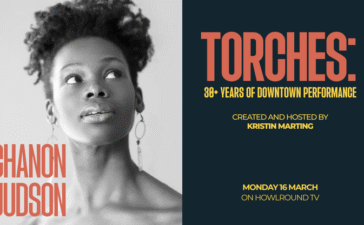In playwriting circles, there is a trend to announce on social media that “I got rejected by XYZ for the umpteenth time and I’ve decided I will never apply again!” It’s usually accompanied by a flurry of commentary either applauding this bold choice or encouraging the clearly suffering artist to give themselves another shot.
The allure of having a sense of refusal in an industry where our work is so often refused can feel empowering. I understand that sentiment in the core of my being. I’ve even given into it on occasion. How to sustain one’s sense of personal agency as an artist is a daily struggle for me and I hold no judgement for how others navigate it. Yet, is reacting to rejection by withdrawing attempts to grasp at brass rings the best way to move your career forward? My career would have been seriously stalled if I had given into that impulse to not repeatedly apply for grants that were long shots—particularly during the decade when I was only being produced abroad and felt largely invisible as a playwright in America, before I shifted to primarily working with theatres that were by and for people of color.
There are no big breaks, only the final whack you need to bust through a creative or professional wall after (and because) you’ve hammered at it enough.
I would be remiss if I didn’t say that applying now is infinitely easier than before the internet existed. Back in the day, you had to drop a pretty penny to photocopy multiple copies of actual scripts and pay for postage. As a young playwright, I would often flip through each page of each script to make sure there wasn’t a hiccup at Kinkos that resulted in one or two pages being missing (which I have to say happened more than once) before rushing to the twenty-four hour post office to get my application postmarked by the deadline. I didn’t fully trust the idea that a literary career was a marathon and not a sprint. It felt like a missing page in one of the copies in my application to an opportunity like the O’Neill’s National Playwrights Conference (which, incidentally, I never was selected to participate in) could make or break my entire career.
I now know there are no big breaks, only the final whack you need to bust through a creative or professional wall after (and because) you’ve hammered at it enough. It’s harder to trust that when you’re newer at the game. If you have only had one or two productions, the way you manage to connect with the people who eventually produce your play seems to take on an outsized, almost mythic, quality. Those early experiences can color how you approach the rest of your career. I’d probably not be writing this essay about how essential it is to keep throwing your hat in the ring if my turning in an application for a fellowship hadn’t led to my first off-Broadway premiere.
When I applied for a Van Lier Fellowship at New Dramatists with an early draft of my play ROAR, Ian Morgan, who worked for the New Group, was on the judging committee. He advocated for it at his theatre. The real step forward for me was not getting the fellowship itself as much as having my play be seen by someone who was in a position to help get it produced.






